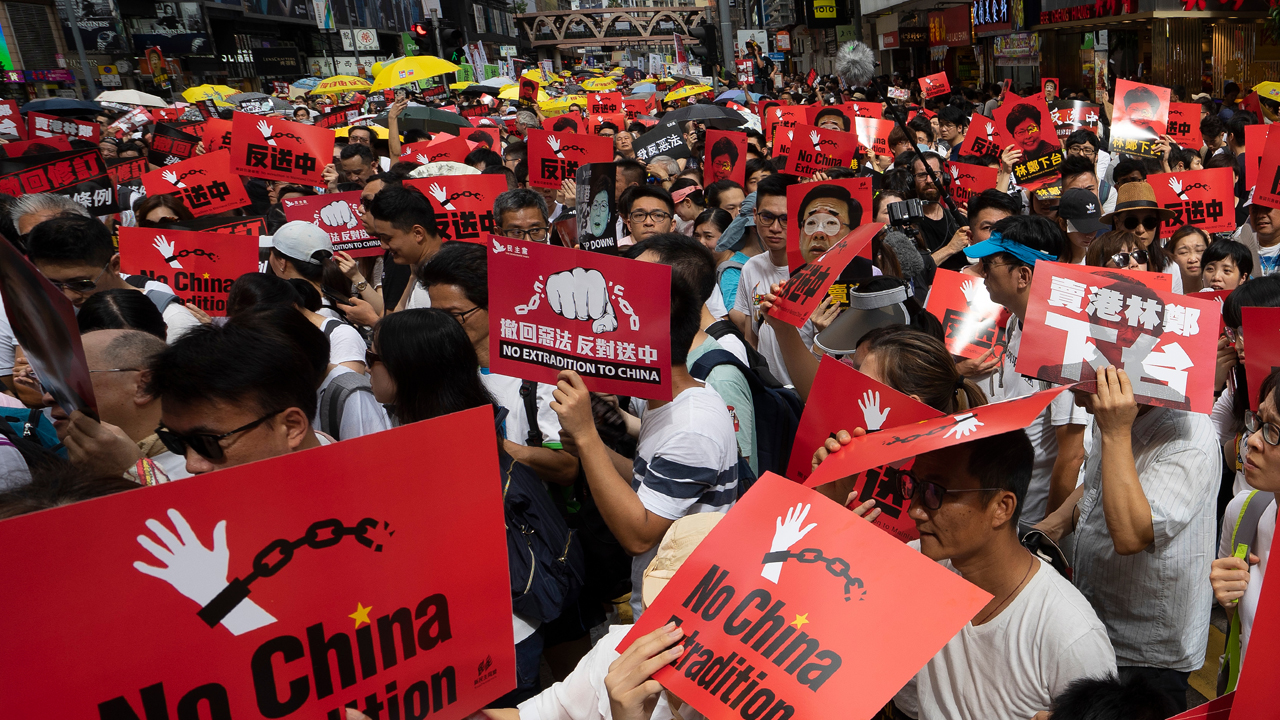
China’s Government Fuels Stablecoin Economy: Hong Kong Protesters, Singapore and Mainland Residents Flee Capital Controls
- Carmela Murray
- June 13, 2020
- Bitcoin
- 0 Comments
A recent study published by Amun researcher, Eliézer Ndinga, shows that USD-pegged stablecoins are being leveraged in Hong Kong as “vehicles for capital control flight.” The report shows how individuals from mainland China, Singapore, and Hong Kong are moving their capital out of control by using these dollar-pegged blockchain tokens.Last week on June 9, 2020, it marked the one year anniversary of the Hong Kong protests that were invoked by China’s extradition law. Almost immediately after the law was introduced, Hong Kong’s citizenry took to the streets in an attempt to claim the country’s true sovereignty. For over 12-months there has been civil unrest and demonstrations in the streets.The blockchain ecosystem that emerged in China has helped Hong Kong residents flee the grasp of China’s totalitarian controls. Not only has blockchain helped individuals from Hong Kong, but also residents in Singapore and those who live within the borders of mainland China as well.“Although as an inherently digital, censorship-resistant, and neutral asset, Bitcoin has not been the first cryptoasset of choice to flee renminbi-denominated assets due to market volatility,” explain’s Eliézer Ndinga’s report.“USD-pegged stablecoins have ended up being just as attractive assets for those seeking to avoid losing large portions of their wealth due to price fluctuations over the short and medium terms. As a matter of fact, QCP Capital a Singapore-based crypto-asset trading firm has witnessed Hong-Kong-based investors fleeing to Singapore and trading stablecoins, predominantly Tether, in an attempt to preserve their wealth.” Amun’s report adds:According to QCP, 80% of capital has poured into stablecoins while the remaining 20% has gone into Bitcoin.Eliézer Ndinga stresses that data and information about the use of stablecoins is not “publicly available as much of crypto adoption in Asia.” This is because most transactions take place “underground especially following the crackdown on crypto exchanges by the Chinese government starting in 2017.”“For example, in Hong Kong, QCP Capital reported that investors trade Tether physically. This method is mainstream so that they are able to move money away cheaply and quickly compared to setting up an offshore account which might take almost a month due to stringent know-your-customer and anti-money laundering procedures,” Eliézer Ndinga’s research highlights. The researcher further states:To mitigate counterparty risk, due to ongoing issues with identity fraud, QCP Capital follows KYC procedures and asks for collateral denominated in stablecoins.The Amun report further notes that the “demonstrations are here to stay in the foreseeable future.” A study from 21shares research also indicates that citizens in Hong Kong, Singapore, China, and other Asian regions are gravitating toward the crypto economy in an exponential fashion.“It is safe to say that stablecoins are becoming a pain-killer product for many investors in such situations,” Eliézer Ndinga’s essay concludes. “This capital outflow from renminbi-denominated assets to USD-pegged stablecoins will strengthen the US Dollar hegemony as the world’s reserve currency. Nonetheless, with interest-bearing accounts like the one launched by Blockchain.com, there could eventually be capital flowing from stablecoins to Bitcoin by Chinese institutional investors and high-net-worth individuals, especially among tech-savvy cohorts,” the researcher conceded.What do you think about Hong Kong, Singapore, and residents from China fleeing to stablecoins? Let us know in the comments below. Tags in this story Amun, Amun Research, Bitcoin, BTC, Capital Controls, China, chinese, Chinese Government, Cryptocurrencies, Digital Assets, Eliézer Ndinga, Fleeing Capital Controls, Mainland, money, Protests, QCP Capital, Singapore, Stablecoin Economy, Stablecoin Use, Stablecoins, unrestImage Credits: Shutterstock, Pixabay, Wiki CommonsDisclaimer: This article is for informational purposes only. It is not a direct offer or solicitation of an offer to buy or sell, or a recommendation or endorsement of any products, services, or companies. Bitcoin.com does not provide investment, tax, legal, or accounting advice. Neither the company nor the author is responsible, directly or indirectly, for any damage or loss caused or alleged to be caused by or in connection with the use of or reliance on any content, goods or services mentioned in this article. Read disclaimer





